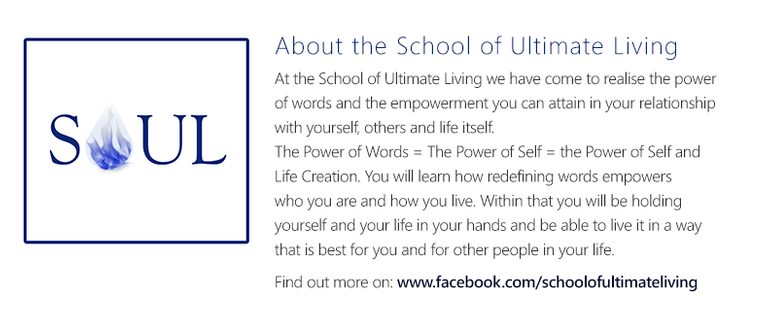 Source: Unsplash
Source: Unsplash
I was talking to a friend of mine about her experience of making physical exercise an integral part of her daily life, how she had moved so far and what her struggles were. In this case, she had set several words as Living Word intentions such as ‘discipline’ and ‘consistency’.
Over time, working with myself and others, these words have often been a tell-tale sign indicating an imbalance in one’s approach in Living Words. What I started seeing within my own process of Living Words, is that there are different types of Living Words. If you have a look at the words ‘discipline’ and ‘consistency’, they require a timeframe to manifest as Living Words. Meaning, a single moment of application does not result in us Living and embodying these words, manifested truly as ourselves. It takes many moments, many breaths for you to verify that yes, I am living discipline or yes, I am living consistency. They are typified by frequency and regularity.
In my friend’s case, she really wanted to manifest consistency and discipline in relation to exercising because she knew it would be good for her and her body.
For more context, this was coming more from an ‘I should be doing this’ – where on a knowledge and information level she knew that this is going to support her, but on a practical experience level, she had little to substantiate this. This was also coupled with her own self-judgments in relation to being disciplined and being consistent, where these two words or traits are known to be valuable, and then judging herself for ‘not being that’. The line that is formed between her starting point and her goal is one of avoidance, wanting to avoid her own self-judgment. If ‘not being disciplined’ and ‘not being consistent’ equals “being bad” – then I have to become ‘disciplined’ and ‘consistent’ so I can feel good about myself (and hopefully others will see more good of me too). It’s then not so much about really living those words, but rather finding comfort and solace in the knowledge of having shifted labels. The desire of living consistency and discipline are not an end on their own, but a means to an end: avoiding self-judgment.
So within the context of my friend what became apparent is that 1) she is not living the words consistency and discipline for herself. When we try to live something as a gateway to something else, we usually fail. Because then it’s not about the gateway, it’s about the end result. In this case: feeling better about myself. And we all know, there are lots of ways to feel better about yourself. Binging on tv series, digging into that favourite pie or cake, going shopping, endlessly scrolling our Facebook feed (also note how these are all means of / gateways for self-avoidance)…
In this case, it’s imperative we clarify for ourselves why we want to live a certain word, and what we gain from it for real (It’s actually a good idea to also write down what fear we see we can avoid with this, as a sort of ‘subconscious motive’, because this will bring it to your awareness and so you will notice when you are shifting your starting point in living a word from expression-based to fear-based Eg. “I want to live discipline because I don’t want to be seen as ‘weak’).
And secondly (and this is kind of the point of this blog post), to define and substantiate how we are going to make these words real for ourselves, which often means we have to look at more than just one word.
Consistency and discipline are very structural, goal-oriented words. They are associated with male expression/yang.
It’s great to aim for structure and goals, for instance, getting a house built, aiming for a degree or profession. But we also have to ask ourselves who we are going to be within the structure or form. Once we have our house, how are we going to live in it? How are we going to take care of it? Who are we going to be while studying? How are we going to approach our studies? How do we substantiate ourselves within our profession? Consistency and discipline for the sake of consistency and discipline don’t do much for us. We’re consistent and disciplined – now what? What for?
In terms of exercising, we can end up saying we are consistent and disciplined, but the same resistance and resentment towards exercising remains. Perhaps it’s a little bit easier because at least we’re satisfied that ‘we’re doing it’.
Because we’re only focused on the goal, we miss substantiating every moment of exercise and what we express / who we are within exercising. We overlook things such as ‘which exercises do I want to do’, ‘which exercises work for my body’, ‘which exercise are putting too much pressure on my body’, ‘do I want to stick to a routine or switch things up according to where I feel my body needs focus’, ‘am I really aware of my body while exercising’, ‘do I exercise care in making sure I perform the exercises correctly, am I doing stretches, giving myself appropriate rest and checking if I need to make any dietary changes to support these new activities in my day to day life’. These questions don’t emerge because they are not part of your initial goal and intent of ‘just get disciplined and consistent with exercising’. The focus is on ‘get it done’ – not ‘who am I within it’. This may give rise to consequences such as overexertion, injury, building strength without flexibility, strain on the body due to dietary needs not being met etc. What was supposed to be a supportive endeavour for yourself, ends up creating damaging consequence.
Similarly, when we only focus on words that are expressive and creative in nature, associated with female expression/yin – we end up with substance without direction.
We may wish to support our bodies in gaining strength, become more aware of our body, really getting to know our body’s capacities, expanding it and nurturing it to the best of our ability – but if we don’t include structural points such as planning, a particular method or modality, consistency and discipline -- we will miss out on the depth and direction in which we can develop and exercise these expressions for and as ourselves. We both want to draw the lines (structure/male) of the picture we want to manifest/create as well as colouring in (expression/female) to substantiate it.
Whenever you’re working on a particular point or working on a particular endeavour, it’s essential to identify for yourself both which structural and expressive words you want to live. When you know you’re more expression inclined and tend to overlook the structural, it’s easy to go overboard in only focusing on the structural and dismissing the point of expression. Yet when we include expression equally in the equation, you will find that mastering the structural expressions becomes a whole lot easier. Rather than contradicting one another, structural and expressive words complement each other in a symbiotic co-creation, taking each expression to a new height.

